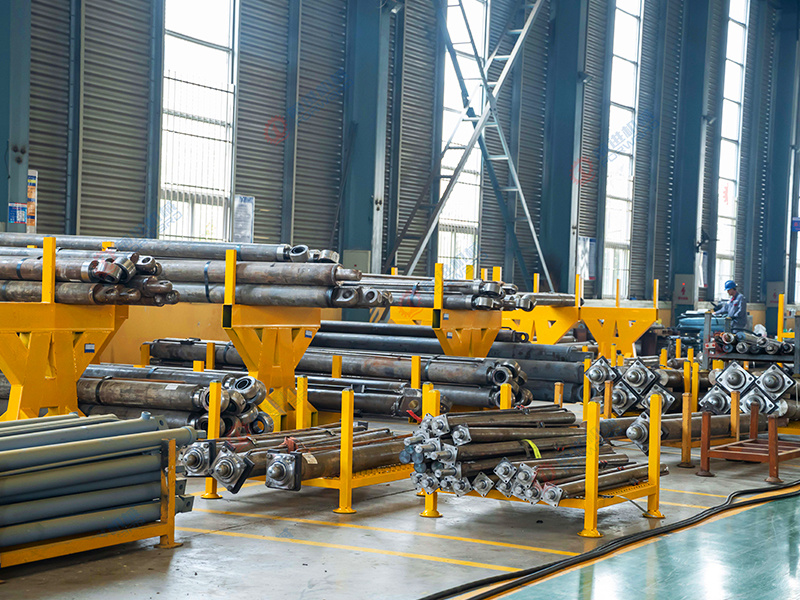Common Applications of Steel Roll Forming Machines You Should Know

Understanding Steel Roll Forming Machines: An Introduction
Steel roll forming machines are essential tools in the manufacturing sector, particularly for producing various metal profiles and components. These machines utilize a continuous bending process to shape steel sheets into desired profiles, enhancing efficiency and product quality. In this article, we will delve into the **common applications of steel roll forming machines** across different industries, showcasing their versatility and importance.
The Process of Steel Roll Forming
Before we explore applications, it’s crucial to understand the **roll forming process**. This procedure involves feeding a flat metal sheet through a series of rollers, where it undergoes gradual bending to achieve the final shape. The process is unique due to its ability to produce long lengths of uniform profiles with minimal waste.
Key Advantages of Steel Roll Forming
Steel roll forming offers several advantages that make it a preferred choice in manufacturing. Notably:
- **High Production Rates**: Roll forming machines can produce large quantities of metal profiles quickly.
- **Consistency**: The process ensures uniformity in dimensions and quality.
- **Material Efficiency**: Minimal waste results from the process, making it environmentally friendly.
- **Versatility**: Capable of forming complex shapes and sizes for various industries.
Common Applications of Steel Roll Forming Machines
Steel roll forming machines are utilized across multiple sectors, each benefiting from the efficiency and precision these machines offer.
1. Construction Industry
The construction industry is one of the primary users of steel roll forming machines. These machines create various components, including:
- **Roofing Panels**: Roll forming machines produce roofing sheets designed for durability and weather resistance.
- **Wall Panels**: These panels are utilized in both residential and commercial buildings, providing insulation and structural support.
- **C Channels and Z Purlins**: Essential for framing and supporting structures, these profiles are vital in the construction process.
2. Automotive Industry
In the automotive sector, roll forming technology is vital for producing parts that require specific shapes and dimensions, including:
- **Chassis Components**: Roll-forming machines create strong and lightweight chassis parts, essential for vehicle structure.
- **Support Brackets**: These are crucial for mounting various components within the vehicle, including engines and suspensions.
- **Trim and Mouldings**: Roll forming allows for the production of aesthetically pleasing trims that add finishing touches to vehicles.
3. Appliance Manufacturing
Steel roll forming machines play a significant role in appliance manufacturing, providing components such as:
- **Frames for Refrigerators and Ovens**: These machines produce durable frames that support heavy appliances.
- **Ventilation Ducts**: Roll forming creates efficient ductwork for heating, ventilation, and air conditioning systems.
- **Shelving and Storage Solutions**: Custom shelving units can be developed to enhance storage efficiency in various appliances.
4. Electrical and HVAC Industries
In both the electrical and HVAC industries, steel roll forming machines are used to create:
- **Cable Management Systems**: Roll forming is used to produce trays and conduits that organize and protect electrical wiring.
- **Ductwork for HVAC Systems**: Efficient duct designs ensure optimal airflow in heating and cooling systems, crucial for energy efficiency.
5. Furniture Industry
The furniture industry benefits from steel roll forming in the following ways:
- **Structural Components**: Roll forming creates frames and supports for various types of furniture, ensuring stability and longevity.
- **Decorative Elements**: Custom shapes and designs can enhance the aesthetic appeal of furniture pieces.
6. Agricultural Equipment Manufacturing
Steel roll forming machines are also utilized in the agricultural sector to produce:
- **Implement Frameworks**: Frames for plows, harrows, and other machinery components are manufactured for strength and stability.
- **Storage Solutions**: Roll formed components help create storage units for tools and supplies on farms.
7. Renewable Energy Sector
As the world moves toward sustainable energy, roll forming plays a crucial role in:
- **Solar Panel Racking Systems**: These systems securely hold solar panels in place, optimizing energy collection.
- **Wind Turbine Components**: Precision roll-formed parts help construct reliable and efficient wind turbines.
8. Custom Applications and Innovations
Beyond the standard applications, roll forming machines can be tailored for specific needs, including:
- **Custom Profiles**: Manufacturers can design unique shapes to meet specific project requirements.
- **Innovative Materials**: Roll forming accommodates various materials, including high-strength alloys and composites, for advanced applications.
Choosing the Right Steel Roll Forming Machine
Selecting the appropriate roll forming machine is crucial for maximizing production efficiency. Here are some factors to consider:
1. Material Type and Thickness
Different machines are designed for various materials, including mild steel, stainless steel, and aluminum. It’s essential to match the machine's capabilities with the material specifications and thickness.
2. Profile Complexity
Consider the complexity of the profiles you intend to manufacture. Machines with advanced features can produce intricate shapes that meet precise engineering standards.
3. Production Volume
Your production needs will influence the machine's output capacity. High-volume operations may require more robust machinery compared to smaller-scale projects.
4. Customization and Flexibility
Look for machines that offer flexibility in production, allowing for easy adjustments to accommodate different profiles and materials.
Maintenance Tips for Steel Roll Forming Machines
To ensure longevity and optimal performance of your steel roll forming machines, regular maintenance is crucial. Here are some tips:
1. Regular Inspections
Conduct routine checks for wear and tear on components, ensuring all parts are functioning correctly.
2. Lubrication
Keep moving parts well-lubricated to prevent friction and wear, which can impact machine efficiency.
3. Cleanliness
Maintain a clean environment to prevent metal shavings and debris from affecting machine operations.
4. Operator Training
Invest in training for operators to ensure they understand machine operations and maintenance protocols.
Future Trends in Steel Roll Forming Technology
The roll forming industry is evolving, and several trends are shaping its future:
1. Automation and Smart Technology
Incorporating AI and automation will streamline processes, reduce labor costs, and improve production accuracy.
2. Sustainable Practices
As environmental concerns grow, manufacturers will increasingly seek sustainable practices, including energy-efficient machines and recyclable materials.
3. Advanced Materials
The development of new materials will enable roll forming machines to create even more innovative products, expanding their applications.
FAQs About Steel Roll Forming Machines
1. What is a steel roll forming machine used for?
Steel roll forming machines are used to create various metal profiles and components for industries like construction, automotive, and appliance manufacturing.
2. How does the roll forming process work?
The process involves feeding a flat metal sheet through a series of rollers that gradually bend it into the desired shape.
3. What are the benefits of using steel roll forming machines?
The benefits include high production rates, consistency in quality, minimal waste, and versatility in shaping materials.
4. Can roll forming machines handle different materials?
Yes, roll forming machines can work with various materials, including mild steel, stainless steel, and aluminum.
5. How do I maintain a steel roll forming machine?
Regular inspections, lubrication, cleanliness, and operator training are essential for maintaining roll forming machines.
Conclusion
Steel roll forming machines are indispensable tools across numerous industries, offering versatility and efficiency in producing high-quality components. From construction and automotive to appliance manufacturing and beyond, the applications of these machines are vast and continually expanding. By understanding the capabilities and benefits of steel roll forming technology, businesses can leverage these machines to enhance production processes, reduce waste, and improve overall product quality. As advancements in technology and materials continue to evolve, the future of steel roll forming promises even greater innovation and efficiency, solidifying its place as a cornerstone of modern manufacturing.
Key words:
recommend News
Share



